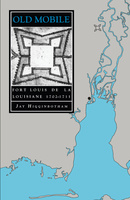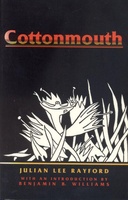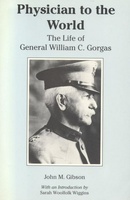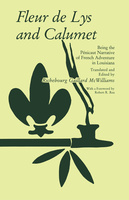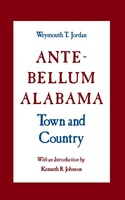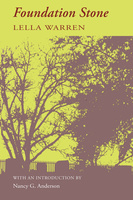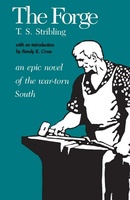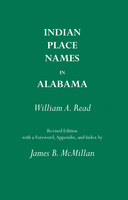Old Mobile
Fort Louis de la Louisiane, 1702-1711
The highly praised, landmark history of the founding of Mobile
Cottonmouth
Originally published in 1941, Cottonmouth is an Alabama novel like no other in its evocation of the sights, sounds, and smells of the city of Mobile, and in its depiction of a young boy growing up in the Deep South during the early 20th century. Highly autobiographical, the book is, in a real sense, two stories in one: the biography of a boy from his earliest memories through high school, and the life of a city in the years between the two world wars.
Rachel's Children
Rachel’s Children, originally published in 1938 by Harper & Brothers, is a powerful story about a woman of immense psychological and spiritual presence attempting to work her way amidst structures of power, property, authority, and genealogy in a world of laws and of other regulations created, interpreted, and administered by men.
Physician to the World
The Life of General William C. Gorgas
Physician to the World is a study of the career of William Crawford Gorgas, whose expertise in combatting yellow fever and malaria was intrumental in Walter Reed’s massive cleanup of Havana and, later, the building of the Panama Canal.
Company K
This book was originally published in 1933. It is the first novel by William March, pen name for William Edward Campbell. Stemming directly from the author's experiences with the US Marines in France during World War I, the book consists of 113 sketches, or chapters, tracing the fictional Company K's war exploits and providing an emotional history of the men of the company that extends beyond the boundaries of the war itself.
Fort Toulouse
The French Outpost at the Alabamas on the Coosa
In addition to discussing geopolitical and military affairs and diplomatic relations with Indian chiefs, Thomas describes daily life at the post and the variety of interactions between residents and visitors.
Long Night
Fleur de Lys and Calumet
Being the Penicaut Narrative of French Adventure in Louisiana
Ante-Bellum Alabama
Town and Country
Unfinished Cathedral
Foundation Stone
Using the history of Alabama and the stories of her pioneering ancestors, Lella Warren created the Whetstone clan who settled Alabama in the 1820s, helped lead it into the prosperity of the 1850s, and fought for it in the War Between the States.
The Store
The Forge
Indian Place Names in Alabama
"What is the 'meaning' of names like Coosa and Tallapoosa? Who named the Alabama and Tombigbee and Tennessee rivers? How are Cheaha and Conecuh and Talladega pronounced? How did Opelika and Tuscaloosa get their names? Questions like these, which are asked by laymen as well as by historians, geographers, and students of the English language, can be answered only by study of the origins and history of the Indian names that dot the map of Alabama.—from the Foreword
Originally published by Professor Read in 1937, this volume was revised, updated, and annotated in 1984 by James B. McMillan and remains the single best compedium on the topic.
Lower Piedmont Country
The Uplands of the Deep South
With a Southern Accent
“Liddell’s autobiography has a sunlit quality and gives a picture of a happy childhood in a little town in Alabama. Her recollections of family life are humorous, nostalgic, vivid and full of the bright, clear air of youth.” – Book of the Month Club News

